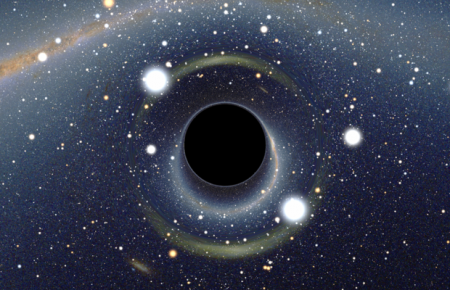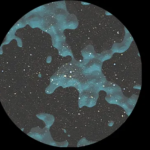February 26, 2018 – When I was young there were a number of theories about the Universe in play. There was the belief in a static Universe with everything in its place in some form synchrony. There was the steady-state Universe, one which although it was expanding, was constantly generating new stars and galaxies in spaces created through expansion. There was the inflation-deflation Universe that worked like a balloon being blown up and then deflated with galaxies moving away from each other during inflation and collapsing in on each other in a cycle of life and death. And then there was the Big Bang, the inflationary theory of the Universe that currently is the one most cosmologists believe to be an accurate reflection of what we see in the sky.
Figuring out the expansion rate led to the discovery of what is known as the Hubble Constant (no relation to the telescope that goes by that name other than the same guy is being honoured in the nomenclature). The Hubble Constant preceded our launching of the Hubble Space Telescope by NASA. And today, because of measurements recently made through it by astronomers at John Hopkins University and the Space Telescope Institute, we are finding out that the Constant as currently calculated is, in fact, wrong by 9%. That means galaxies are moving away from each other even faster than previously thought.
The difference from previous observations is simply this. Galaxies are moving away from us here in The Milky Way at a rate of 73 kilometers per second per megaparsec. Megaparsecs are a unit measure used by astronomers. A parsec equals a light year. A megaparsec equals a million light years.
This doesn’t impact us in any way here on Earth but it is interesting science that confounds astronomers and cosmologists. Some hypothesize that the increased acceleration may be caused by the strengthening of dark energy, already the culprit scientists theorize explains the Universe’s accelerating expansion. Others have proposed a new subatomic particle, potentially a particle similar to a neutrino, that travels at close to the speed of light and is affected only by gravity. The accumulation of these supposed particles is referred to as dark radiation. And then there is the ever-present reference to dark matter, invisible and yet present like a shadow of visible matter that interacts in such a way with the Universe to explain accelerated values.
The paper can be accessed here for those of you sufficiently intrigued to learn more about Parallaxes of Galactic Cepheids as observed through the Hubble Space Telescope and what the implications are for the Hubble Constant.
And then there is work by a UC Berkeley postdoctoral fellow, Peter Hintz, who hypothesizes that the laws of space and time break down in “benign black holes.” What is a benign black hole? It’s a black hole that is so large, the acceleration of objects close to the event horizon does not rip them apart. Fall into a benign black hole and theoretically, you can survive.
Hintz points out that his hypothesis is a thought experiment, a mathematical construct similar to that created by Einstein leading to general relativity. Einstein predicted the existence of black holes. Hintz now takes us inside one to find out what’s there.
In Hintz’ black hole the past no longer determines the future. As the traveler approaches the event horizon time would slow down. Light, gravitational waves and anything else falling into the black hole would stop time. Hintz doesn’t claim that benign black holes exist. In fact, he describes his thought experiment as conjecture plus mathemtatical formulas.
But he does reference Alice in Wonderland and asks what it would be like to drop into a black hole stating “She will not be able to say what is going to happen.” What it means is Alice will permanently live at a moment in time with no past or future.
Put that in your pipe and smoke it!

















